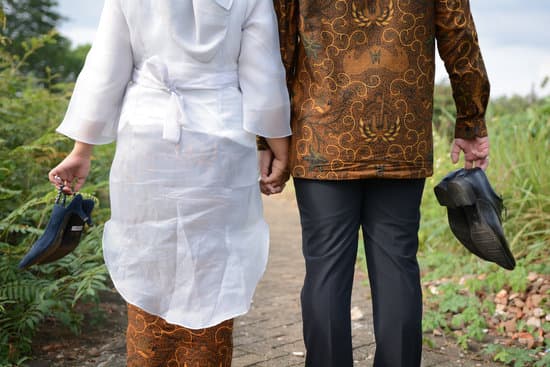Planning a wedding involves many decisions, and one of the most important ones is the cake. The cake is often the centerpiece of the reception, and making it perfect requires careful consideration of flavors, fillings, and design.
In this article, we will guide you through the process of creating a stunning wedding cake from start to finish. From choosing the right flavors and fillings to troubleshooting common baking problems, we have all the tips and tricks you need to make a memorable and delicious confection for your special day.
When it comes to crafting a wedding cake that will delight your guests, selecting the right flavors and fillings is crucial. From classic vanilla and chocolate to more adventurous combinations like raspberry lemon or salted caramel, there are endless possibilities when it comes to flavor pairings. We will explore the best flavor combinations and provide tips for choosing fillings that complement these flavors seamlessly.
In addition to flavor considerations, we will also provide step-by-step guidance on preparing the cake layers with insider tips for achieving a moist and flavorful texture. By mastering the art of baking perfect cake layers, you can ensure that your wedding cake not only looks beautiful but tastes incredible as well. So let’s dive into the first step of creating a show-stopping wedding cake: choosing the right flavors and fillings.
Preparing the Cake Layers
When it comes to making a wedding cake, the foundation is key. The cake layers serve as the base for all the delicious fillings and decorative elements, so it’s important to get them just right. Here’s a step-by-step guide on how to prepare the perfect cake layers for your wedding cake:
1. Selecting the Right Flavors: Before you start baking, consider the flavor profile of your wedding cake. Classic options like vanilla, chocolate, and red velvet are always popular choices, but don’t be afraid to get creative with unique flavors like lemon raspberry or coconut lime. Think about what would complement your chosen fillings and appeal to your guests’ palates.
2. Baking Perfect Cake Layers: Once you’ve decided on the flavors, it’s time to bake the cake layers. Use high-quality ingredients and follow a trusted recipe that ensures a moist and flavorful texture. Don’t overmix the batter, as this can result in a tough cake, and make sure to evenly distribute the batter in the pans to avoid uneven rising.
3. Achieving Moisture and Flavor: To ensure that your cake layers turn out moist and delicious, consider using simple syrup to brush onto the baked layers before assembly. This adds moisture and enhances flavor without making the cake overly sweet.
By following these steps, you can ensure that your wedding cake has a strong foundation with perfectly prepared cake layers that will delight your guests with every bite.
Creating a Sturdy and Stable Cake
In addition to selecting the right support system, it’s crucial to ensure that each cake layer is properly leveled before assembling them. Using a long serrated knife or a cake leveler can help you achieve even layers, which will contribute to the overall stability of the cake. It’s also recommended to use a thicker consistency of frosting or buttercream between each layer to provide additional support and prevent any shifting or sliding.
Another key aspect of creating a sturdy and stable wedding cake is paying attention to proper chilling and setting times throughout the baking and assembling process. Allowing adequate time for each component of the cake to set in place before moving on to the next step is crucial in preventing any structural issues later on.
Expert decorators recommend doing thorough research on techniques for assembling multi-tiered cakes, seeking advice from experienced bakers, and possibly practicing with dummy cakes before attempting your final creation. By ensuring that you understand how to create a stable base for your wedding cake, you’ll be one step closer toward achieving a beautifully crafted centerpiece for your special day.
| Method | Suitable Cake Designs |
|---|---|
| Dowels | Multi-tiered cakes with traditional stacked design |
| Pillars | Cakes with intricate or elaborate decorations |
| Central Support Rod | Heavy or unusually shaped cakes |
Mastering the Art of Cake Decorating
When it comes to decorating a wedding cake, there are numerous styles and techniques to choose from. Whether you prefer a classic, elegant look or a more modern and trendy design, it’s important to master the art of cake decorating to achieve the perfect finish for your creation.
One popular method for cake decorating is using fondant. Fondant allows for a smooth and polished appearance, making it ideal for intricate designs and detailed decorations. Another common technique is using buttercream, which offers a softer and more rustic look. It’s important to experiment with different decorative elements such as edible flowers, geometric patterns, or even metallic accents to create a unique and visually stunning wedding cake.
In addition to exploring various decorating styles, it’s essential to practice piping techniques for adding borders, writing messages, or creating ornate details. Whether you’re using royal icing or a specialized piping gel, mastering these skills will elevate the overall presentation of your wedding cake. Remember that attention to detail is key when it comes to cake decorating – precision and patience will ensure a professional-looking result that will impress guests.
| Cake Decorating Techniques | Fondant | Buttercream |
|---|---|---|
| Advantages | Ideal for intricate designs and detailed decorations | Offers a softer and more rustic look |
| Examples | Edible flowers, geometric patterns, metallic accents | Piping borders, writing messages, creating ornate details |
Designing a Beautiful Wedding Cake
When it comes to designing a beautiful wedding cake, there are numerous factors to consider. From elegant and traditional designs to modern and trendy creations, the possibilities are endless. Here are some ideas for creating a stunning wedding cake that will be the centerpiece of the reception:
- Classic Elegance: A tiered white cake adorned with delicate sugar flowers and intricate piping details exudes timeless elegance. Opt for a classic monogram or the couple’s initials as a personalized touch.
- Modern Chic: For a contemporary look, consider clean lines, geometric shapes, and metallic accents. Incorporating unexpected elements such as marble fondant or abstract designs can add a chic and edgy vibe to the cake.
- Rustic Charm: Embrace a more relaxed and organic aesthetic with a rustic-inspired wedding cake. Textured buttercream frosting, fresh blooms, and natural foliage create a charmingly romantic look perfect for an outdoor or barn wedding.
It’s important to take into account the wedding theme and color scheme when designing the cake. Whether it’s whimsical and bohemian or sophisticated and glamorous, the cake should reflect the overall style of the event.
In addition to considering aesthetics, practicality should also be taken into consideration. Consult with the couple about their flavor preferences, dietary restrictions, and any special requests they may have. Incorporating these elements ensures that the design is not only visually stunning but also perfectly tailored to their tastes.
Transporting and Setting Up the Cake
When it comes to creating a wedding cake, one crucial aspect that often gets overlooked is the transportation and set up of the finished masterpiece. After putting in all the hard work to bake, assemble, and decorate the cake, the last thing you want is for it to be damaged during transit or to collapse before the reception even begins.
In this section, we will provide valuable tips for safely transporting your wedding cake to the venue and a step-by-step guide for setting it up at the reception.
Tips for Safely Transporting the Cake
Transporting a wedding cake can be a nerve-wracking experience, but with careful planning and preparation, you can ensure that your creation arrives at the venue in pristine condition. When transporting a multi-tiered cake, it is essential to use proper support systems such as dowels and cake boards between layers to prevent shifting and collapsing.
Additionally, driving cautiously and avoiding sudden stops or sharp turns can also help protect your cake from damage during transit. It’s also advisable to have someone ride shotgun in order to keep an eye on the cake while it’s being transported.
Step-by-Step Guide for Setting Up the Cake
Once you’ve successfully transported your wedding cake to the venue, it’s time to carefully set it up so that it looks as beautiful as you envisioned. Begin by finding a sturdy table or stand where the cake will be displayed and ensure that it’s level before placing the cake on top.
Next, carefully stack each tier of the cake using any additional support structure needed such as dowels or pillars. The final step is decorating by adding any finishing touches such as fresh flowers, decorative elements, or a custom cake topper.
By following these helpful tips for transporting and setting up your wedding cake, you can ensure that your masterpiece arrives at its destination intact and looks stunning when presented at the reception.
Now that we’ve covered all aspects of creating a beautiful wedding cake – from choosing flavors to troubleshooting common baking problems-we hope you feel confident in tackling this delicious project for your special day.
Troubleshooting Common Cake Baking Problems
Whether you’re a seasoned baker or a novice, it’s common to encounter baking problems when making a wedding cake. However, with the right knowledge and techniques, these issues can easily be resolved. In this section, we will address some common cake baking problems and provide solutions to ensure that your wedding cake turns out perfect.
Sunken Cakes
One of the most common issues when making a wedding cake is the dreaded sunken cakes. This can happen due to several reasons such as underbaking, overmixing the batter, or opening the oven door too early in the baking process. To prevent this, make sure to follow the recipe instructions carefully and avoid overmixing the batter. Additionally, refrain from opening the oven door until the cake is almost fully baked.
Dry Texture
Another problem that many bakers encounter is achieving a dry texture in their cakes. To avoid this issue, make sure not to over-bake the cake layers. Use a timer and regularly check on your cakes towards the end of their baking time. Additionally, consider using ingredients such as sour cream or buttermilk in your recipe to keep the cake moist.
Uneven Baking
Uneven baking can result in some parts of the wedding cake being overcooked while others are undercooked. To ensure even baking, invest in good quality cake pans and rotate them during baking if necessary. Also, consider investing in an oven thermometer to ensure that your oven temperature is accurate.
By addressing these common cake baking problems and implementing our tips and solutions into your wedding cake making process, you’ll be better equipped to create a perfect and delicious centerpiece for any wedding celebration.
Tips for Serving and Storing the Cake
In conclusion, making a wedding cake can be a labor of love, but the end result is well worth the effort. From choosing the right flavors and fillings to mastering the art of cake decorating, every step plays a crucial role in creating a beautiful and delicious centerpiece for a couple’s special day.
By following the tips and techniques outlined in this article, anyone can learn how to make a wedding cake that meets both aesthetic and culinary expectations. Whether it’s selecting the perfect flavor combinations or troubleshooting common baking problems, there are resources available to help bakers at every stage of the process.
Finally, once the cake has been served and enjoyed, it’s important to know how to properly store any leftovers. With proper storage, the memories of that special day can be preserved along with the remaining slices of delicious cake. Whether for future anniversaries or other special occasions, knowing how to serve and store the wedding cake properly ensures that its beauty and flavor will last long after the celebration has ended.
Frequently Asked Questions
How Many Days Before a Wedding Can You Make the Cake?
The ideal time to make a wedding cake is 1-2 days before the event. This allows for the cake to be fresh and not dry out before the big day.
What Do You Need to Make Your Own Wedding Cake?
To make your own wedding cake, you will need ingredients such as flour, sugar, eggs, butter, baking powder, and flavorings like vanilla extract. You’ll also need cake pans, a mixer, piping bags, and a cake stand.
How Do You Make a Wedding Cake for 100 Guests?
Making a wedding cake for 100 guests involves careful planning and precise measurements. It typically requires multiple tiers of cake, with each tier being larger in size to accommodate the number of servings needed. Additionally, you’ll need to consider the type of frosting or icing to use and any decorations to match the wedding theme.

I have been involved in marriages for over 20 years helping couples and singles understand more about them.





